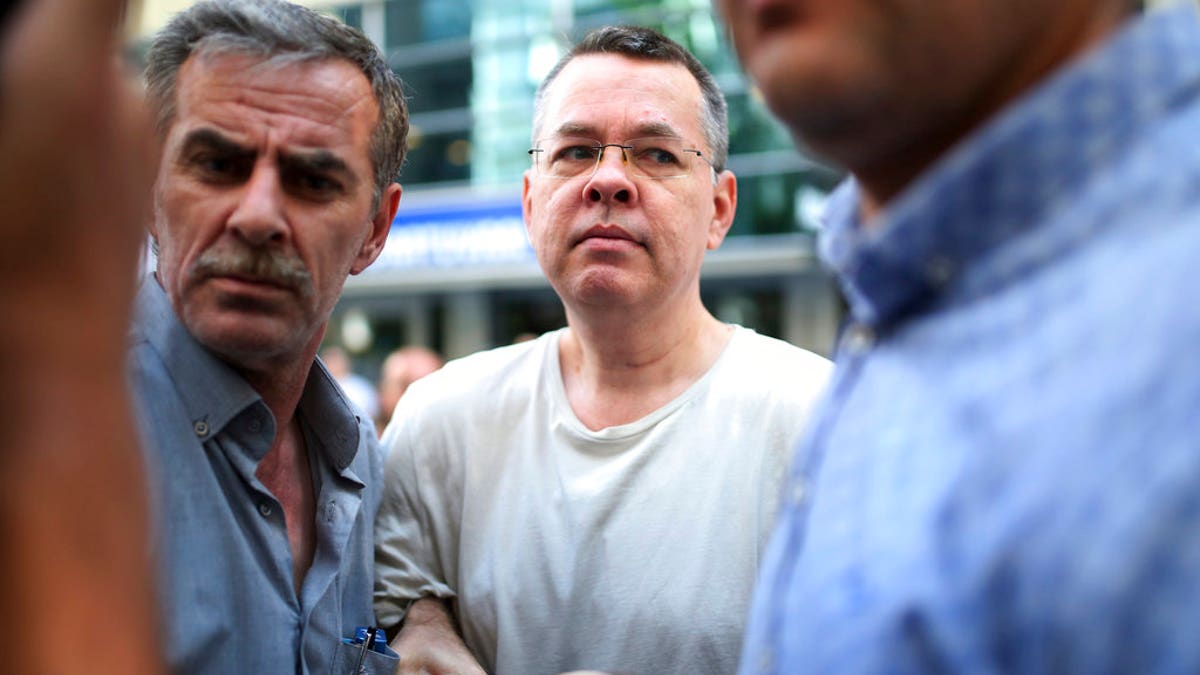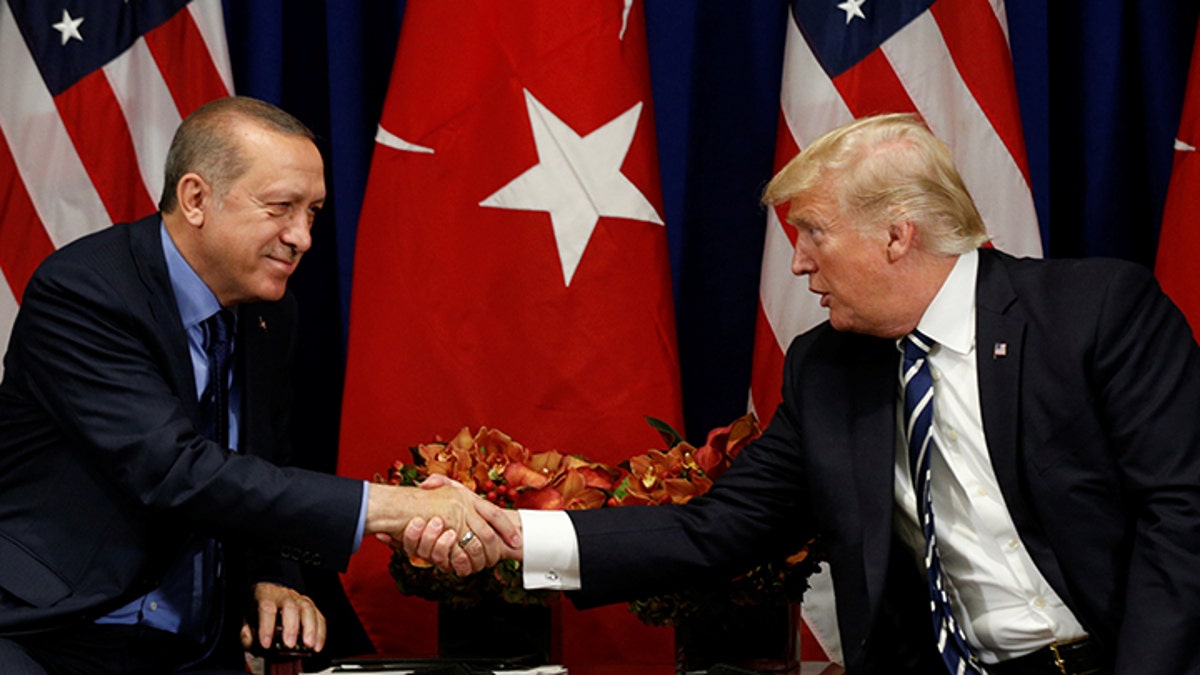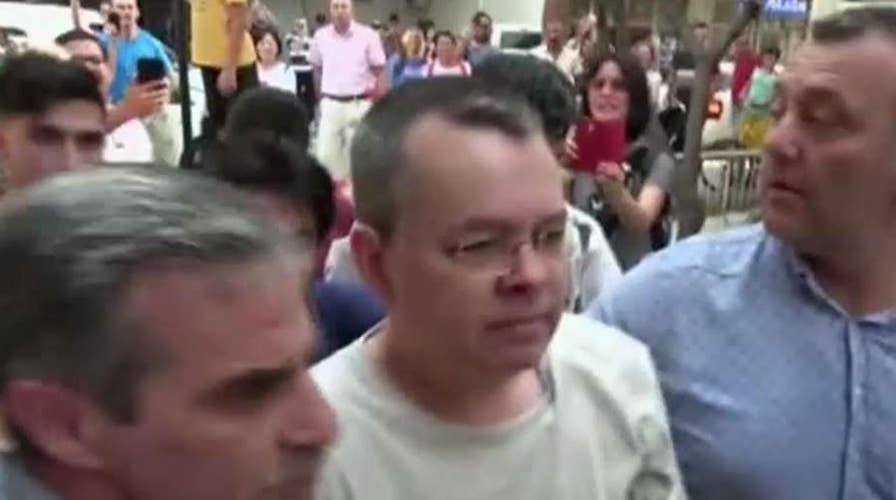Will threat of sanctions bring Pastor Andrew Brunson home?
Sen. Thom Tillis speaks out on efforts to return U.S. pastor detained in Turkey.
Supporters of Andrew Brunson, the American pastor at the center of an escalating international dispute between Turkey and the United States, continue to press for his freedom but concede they don't know what next steps might secure his freedom.
"We are still working and still hopeful. There are ongoing discussions, but no updates yet," said a Turkey-based U.S. official on Wednesday, after a Turkish appeals court rejected a request by Brunson's lawyers to free him from what most observers regard as trumped-up terrorism charges.
Officials closely tied to the case fear the rift between the two NATO allies will only liken deepen in coming days, as neither side shows signs of backing down.
“Pastor Andrew Brunson is an innocent man held in Turkey & justice demands that he be released. Turkey would do well not to test President Trump’s resolve to see Americans who are wrongfully imprisoned in foreign lands returned home to the United States,” Vice President Mike Pence tweeted on Wednesday.
Pence's tweet followed President Donald Trump's announcement last week that he was doubling tariffs on metal imports from Turkey – on top of already-imposed sanctions. The sanctions announcement contributed to the sharp decline of the Turkish lira, which has sparked fears in the international finance community of an impending Turkish economic crisis.
U.S. officials are now cautioning that further economic strains may be on the way for the once critical strategic partner if Brunson is not released, with White House national security adviser John Bolton cautioning the Turkish ambassador Serdar Kilic that the U.S would “not give any ground.”
Brunson – a native of North Carolina – had lived in Turkey as a missionary for more than 20 years, and led the small Izmir-based Resurrection Church before being swept up in Turkish President Tayyip Erdogan’s crackdown following a failed coup in July 2016. Brunson was held without charges until five months ago, when the terrorism indictment was handed down.
Turkish prosecutors accuse the pastor of “terrorist” ties to both the Islamist Gulen movement, which Ankara blames for the failed coup attempt, as well as to the outlawed PKK Kurdish separatist movement.
Brunson, who has denied all charges, was moved to house arrest on July 25 due to ailing health, but was ordered to wear an electronic bracelet at all times. He is also forbidden from traveling outside Turkey.
Several sources closely connected to the negotiations said there was a sense among Brunson's family that he would be released in July. But that didn't happen, much to the “frustration” with U.S. officials when he was instead shifted to house arrest.
The U.S had for months crafted an array of “incentives” for Turkey to release Brunson, officials said, with the expectation of release.

Pastor Andrew Brunson has been detained in Turkey for almost two years. (AP, File)
“We welcomed the move to house arrest, but this is not enough,” said one official. “Time will tell how this plays out, but there has been high-level concern for quite some time. But it has been running slow.”
Brunson’s next hearing as part of the trial is scheduled for October 12. He faces up to 35 years behind bars if found guilty.
Erdogan seems unfazed by the U.S. moves, even as the Turkish economy suffers.His government responded by doubling tariffs on U.S imports in Turkey on tobacco, alcohol, and cars. Erdogan has also called on Turks to not use American electronic goods if the sanctions are sustained.
US PASTOR IN TURKEY TOPS LIST OF AMERICANS JAILED, SENTENCED ON DUBIOUS CHARGES
WIVES AND MOTHERS ON YEMEN'S FRONTLINE FIGHT TO FREE THOUSANDS OF MEN FROM PRISON HELL

The Turkey-U.S. relationship has reached a boiling point. (File)
An attorney for Brunson told Fox News there were no developments in the case this week outside of the appeals court action.
Aykan Erdemir, a Senior Fellow at the Foundation for the Defense of Democracies (FDD), said that the appeal refusal was “yet another indication that Erdogan is doubling down against the U.S pressure to free the pastor.”
The Turkish president "seems to be recalibrating his hostage diplomacy, by differentiating his attitude toward U.S and European Union detainees," said Erdemir, citing Turkey's decision this week to release two Greek soldiers who were being held on suspicion of espionage, as well as the top Turkish representative of the London-based Amnesty International.
“Erdogan is trying to win the support of European governments in his ongoing Washington spat. His hardline stance on Pastor Brunson and the other U.S. detainees, in stark contrast to European hostages, will likely trigger further sanctions from Washington,” Erdemir predicted.
Jim Phillips, a senior research fellow for Middle Eastern affairs at the Heritage Foundation, anticipates the next moves will be for Washington to “pull the plug on the delivery of F-35 stealth fighters and other arms sales, and lobby against loans for Turkey at international financial institutions.”
Other U.S government and intelligence sources lament the situation has come to this point, and fear it will jeopardize the fight against terrorism in the Middle East. “Both sides are making more of it than should be made,” said one source.
Others have expressed frustration the Trump administration has taken such a vocal and public approach, particularly when Turkey had already taken the “positive step” of moving Brunson to house arrest.
But others disagreed.
“The Trump administration initially tried to resolve the Brunson hostage situation through quiet diplomacy. But President Erdogan’s stubbornness and continued provocations led President Trump to brush him back with the tariff announcement, which has made Turkey’s self-inflicted economic problems much worse,” Phillips said. “President Erdogan has fallen back on hostage-taking to pressure the United States. This is a tactic adopted by enemies, not allies. The crisis over Brunson’s persecution has underscored the degree to which Turkey has drifted away from the West under Erdogan’s leadership.
While Brunson’s case is the most visible, the U.S State Department is also working to release “a handful” of other Turkish-American citizens - all of whom have dual citizenship - who have also been detained in what is deemed to be political hostage taking. One case, NASA scientist Serkan Golge, has received some attention in the U.S., as has the arrest of several Turkish employees of the U.S. embassy in Turkey. But more than a dozen other Turkish-Americans remain in the Turkish criminal justice system.
“The Turkey-US relationship has very deep and historical ties, and there is no doubt that there are several obstacles now in that relationship,” said the Turkey-based U.S. official. “And the release of all these Americans is an important part of that relationship.”

